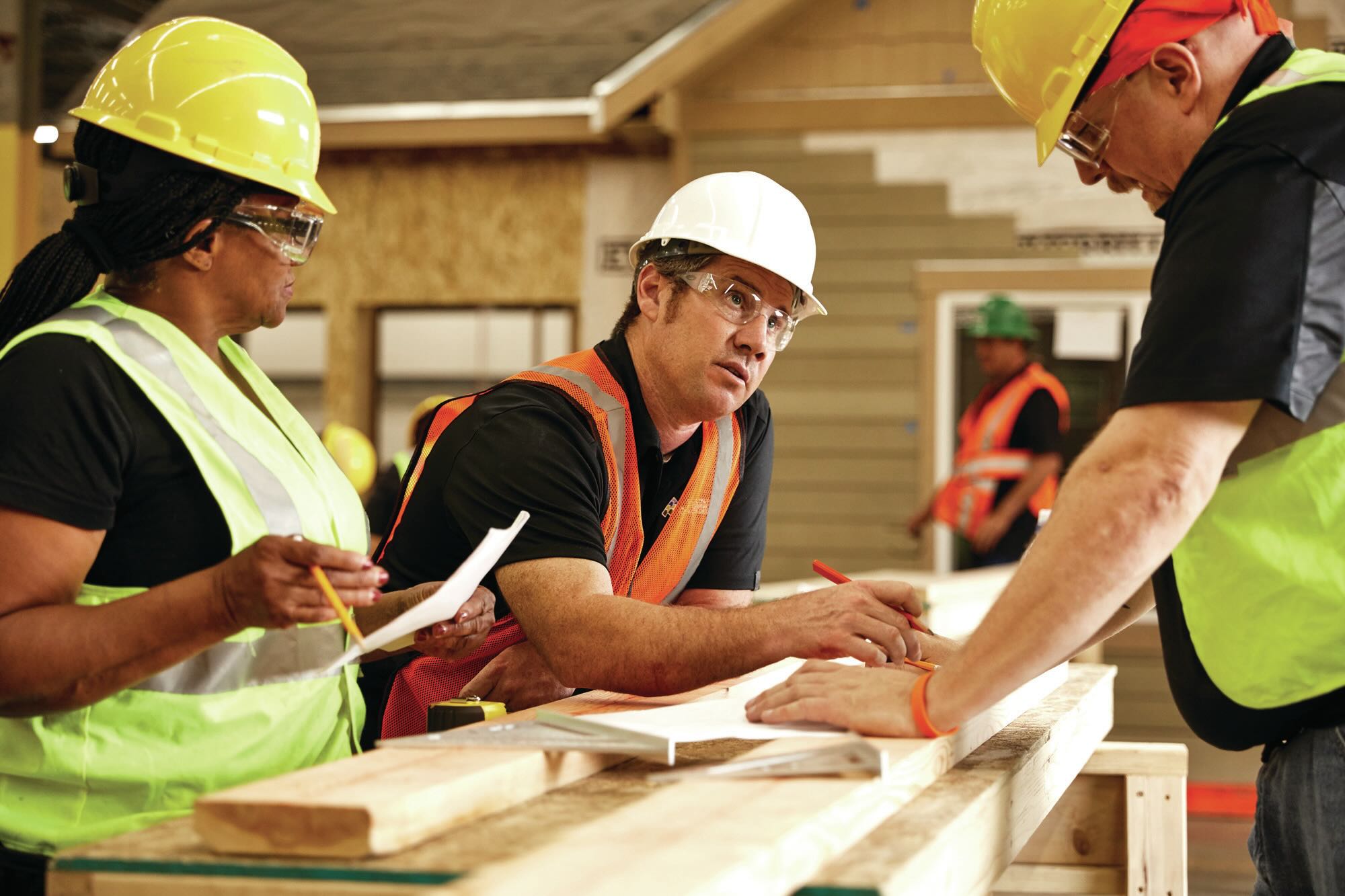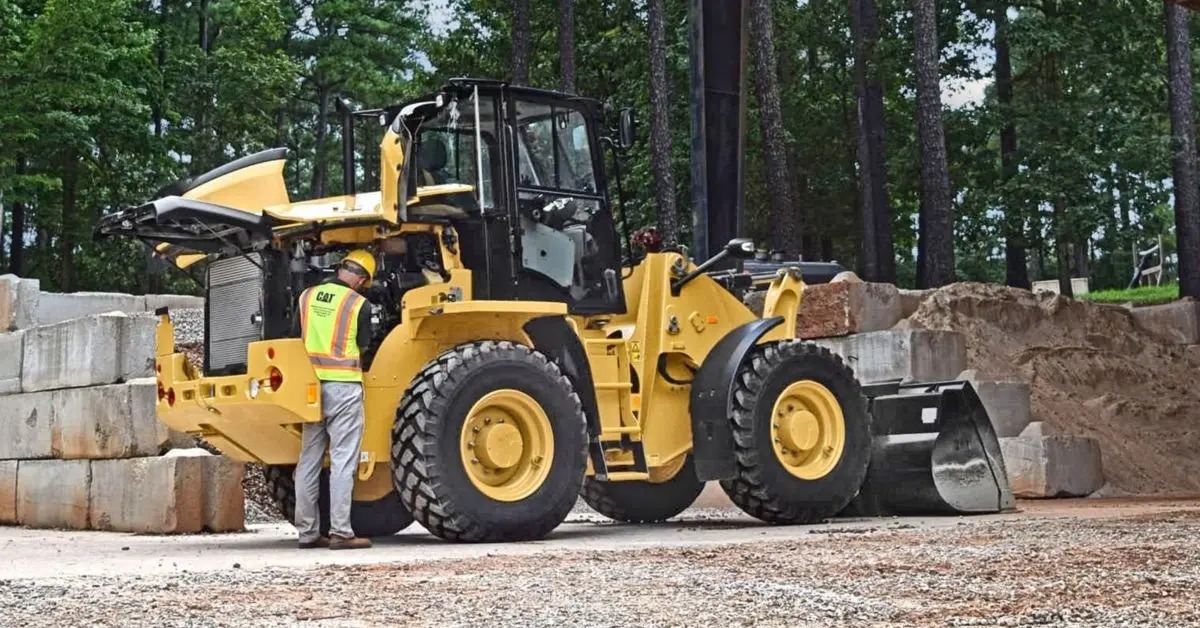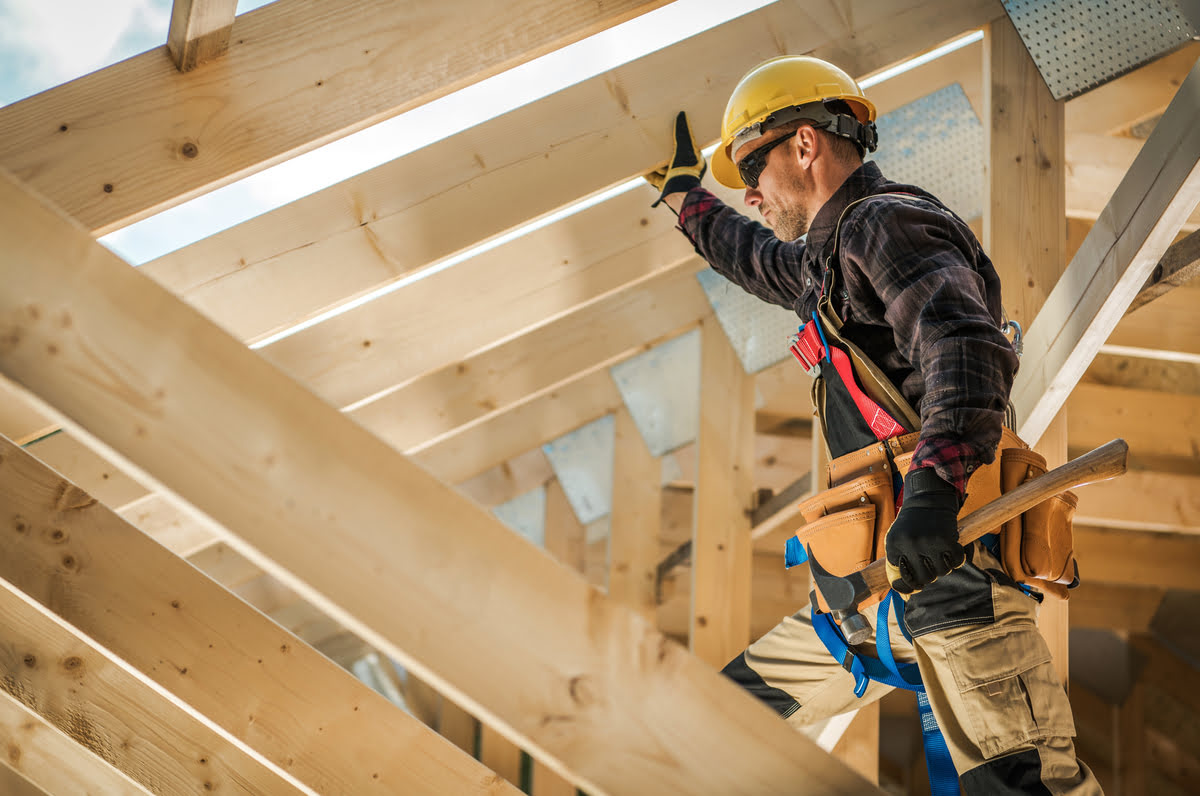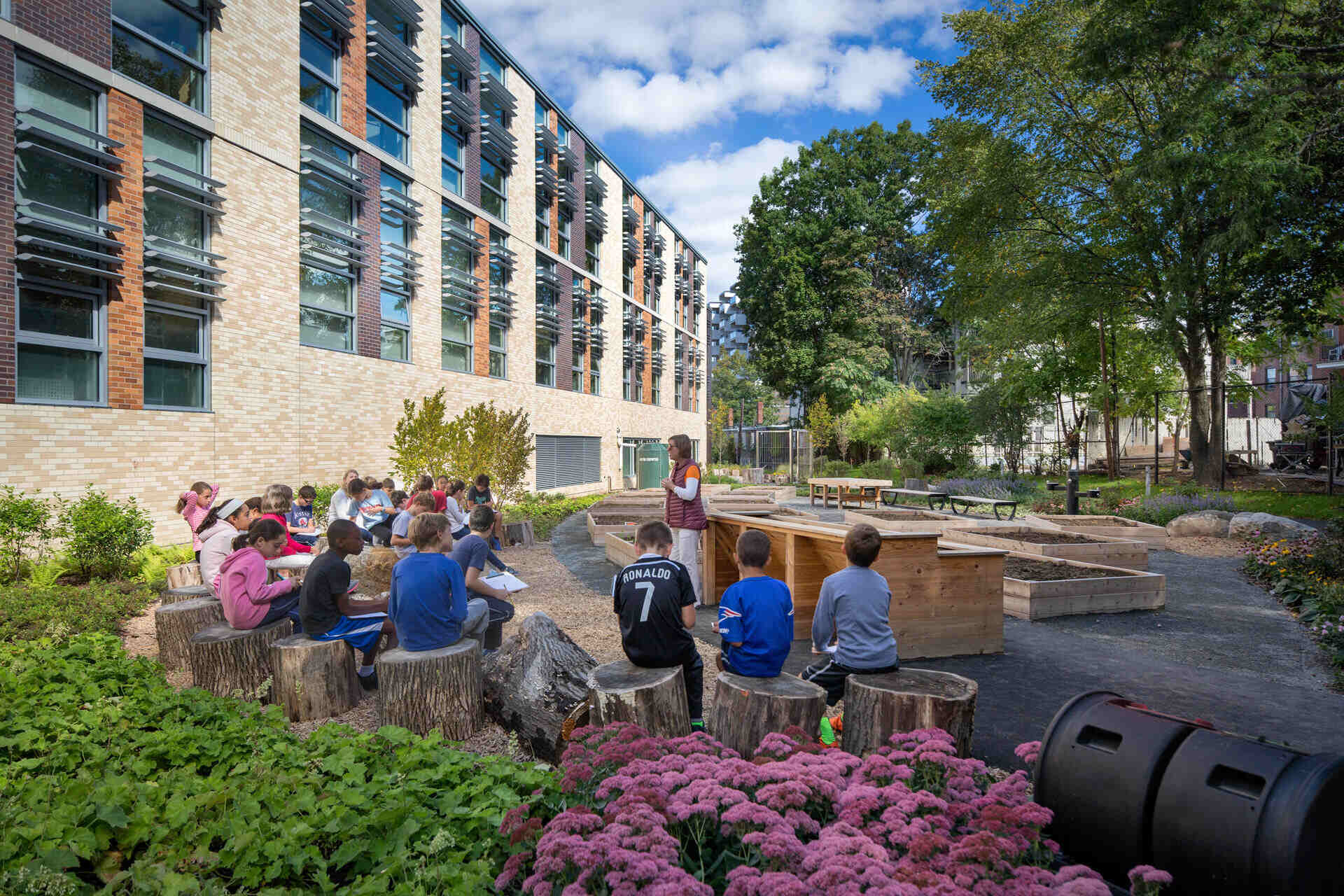Home>diy>Building & Construction>How Long Is Trade School For Construction


Building & Construction
How Long Is Trade School For Construction
Modified: August 27, 2024
Discover how long trade school for building construction typically takes and start your career in the construction industry. Choose the right program to gain the skills and knowledge you need.
(Many of the links in this article redirect to a specific reviewed product. Your purchase of these products through affiliate links helps to generate commission for Storables.com, at no extra cost. Learn more)
Introduction
When it comes to pursuing a career in construction, trade schools offer a valuable pathway for individuals to acquire the necessary skills and knowledge. Unlike traditional four-year degree programs, trade schools provide specialized training in specific trades, such as construction. This focused approach allows students to gain practical experience and expertise in their chosen field in a shorter span of time.
In this article, we will explore the benefits of attending trade school for construction and discuss the length of trade school programs. Whether you are considering a career change or are a high school graduate exploring your options, understanding the time commitment required for trade school can help you make an informed decision about your educational journey.
So, let’s dive into the world of trade schools and discover how they can pave the way for a successful career in the construction industry.
Key Takeaways:
- Trade school programs for construction offer specialized training, shorter durations, and cost-effectiveness, providing a practical and efficient route to enter the construction field.
- By attending trade school for construction, individuals can gain in-demand skills, hands-on learning experiences, and job placement assistance, paving the way for a successful and fulfilling career in the industry.
Read more: What Is A Trade In Construction
Benefits of Trade School for Construction
Trade schools offer numerous advantages for individuals interested in pursuing a career in construction. Here are some of the key benefits:
- Specialized Training: Trade schools focus specifically on the skills and knowledge required for construction trades. This specialized training allows students to gain hands-on experience and industry-specific expertise, making them highly sought after by employers.
- Shorter Duration: Unlike traditional four-year degree programs, trade school programs are typically shorter in duration. This means that students can complete their training and enter the workforce sooner, without sacrificing the quality of education.
- Cost-Effective: Trade school programs tend to be more cost-effective compared to traditional colleges and universities. This is because trade schools often have lower tuition fees and offer focused training, eliminating the need for additional general education courses.
- Job Placement Assistance: Many trade schools have strong partnerships with employers in the construction industry. This allows them to provide valuable job placement assistance to their graduates. Students can benefit from networking opportunities, career fairs, and job placement support, increasing their chances of finding employment soon after completing their program.
- In-Demand Skills: The construction industry is constantly in need of skilled workers. By attending trade school, individuals can acquire the practical skills and knowledge that are highly valued by employers. This demand for skilled labor creates excellent job prospects and potential for career growth in the construction field.
- Hands-On Learning: Trade schools emphasize hands-on learning, providing students with real-world experience. From working with tools and materials to building structures, students gain practical skills that prepare them for the challenges and demands of the construction industry.
- Opportunity for Entrepreneurship: Trade school graduates have the potential to start their own businesses in the construction field. With the skills and knowledge gained from their trade school education, individuals can take on projects independently, becoming their own boss and enjoying the freedom and flexibility that comes with entrepreneurship.
Attending trade school for construction can open doors to a rewarding and prosperous career in the industry. The specialized training, shorter duration, cost-effectiveness, job placement assistance, in-demand skills, hands-on learning, and entrepreneurial opportunities make trade schools an attractive option for aspiring construction professionals.
Length of Trade School Programs for Construction
The length of trade school programs for construction can vary depending on various factors, including the specific trade, level of certification, and the intensity of the program. While the duration can differ from one trade school to another, most trade school programs for construction typically range from a few months to a couple of years.
Here are some common durations for trade school programs in construction:
- Short-Term Programs: Some trade schools offer short-term programs that can be completed in a matter of weeks or a few months. These programs are ideal for individuals who want to learn specific skills or gain certification in a particular area of construction, such as electrical wiring or plumbing. Short-term programs are focused and intensive, providing students with the essential knowledge and practical training needed to enter the workforce quickly.
- Medium-Term Programs: Medium-term trade school programs for construction typically last between six months and one year. These programs offer a more comprehensive education, covering a broader range of topics and skills. Students who enroll in medium-term programs can expect to gain a deeper understanding of their trade and develop a solid foundation of knowledge and practical expertise.
- Long-Term Programs: Long-term trade school programs for construction usually span over one to two years. These programs provide students with an extensive education that covers all aspects of their chosen trade. Students will have the opportunity to learn in-depth techniques, theories, and practical applications. Long-term programs often include an apprenticeship component, where students work under the supervision of experienced professionals to further enhance their skills.
It’s important to note that the length of trade school programs can vary based on factors such as part-time or full-time enrollment, the pace of study, and the individual’s prior knowledge or experience in the field. Some trade schools offer flexible schedules, allowing students to choose between daytime or evening classes to accommodate their other commitments.
Prior to enrolling in a trade school program for construction, it’s beneficial to research and compare different institutions to find the program that aligns with your career goals and fits your schedule and budget. Understanding the duration of the program will help you plan your education journey and make an informed decision to pursue a successful career in the construction industry.
Trade school for construction typically ranges from 6 months to 2 years, depending on the specific program and the level of certification or degree being pursued. It’s important to research and choose a program that aligns with your career goals.
Factors Affecting the Duration of Trade School for Construction
The duration of trade school programs for construction can be influenced by several factors. Understanding these factors can help individuals choose the right program that fits their needs and goals. Here are some key factors that affect the duration of trade school for construction:
- Trade Specialization: The specific trade chosen can impact the length of the program. Different trades require varying levels of knowledge and training. For example, a program focusing on carpentry or painting may have a shorter duration compared to programs for electricians or HVAC technicians, which require more complex skills.
- Level of Certification: The level of certification sought also plays a role in the duration of the program. Trade school programs may offer different levels of certification, such as entry-level certifications or advanced certifications. Higher-level certifications may involve additional coursework and practical training, leading to a longer program duration.
- Apprenticeship Component: Some trade school programs include apprenticeship components, where students work under the guidance of experienced professionals. Apprenticeships provide valuable hands-on experience and mentorship, which may extend the overall duration of the program.
- Course Load and Schedule: The course load and scheduling options can determine the duration of the program. Full-time programs with a higher number of courses per semester may be completed more quickly, while part-time programs may take longer to finish. Additionally, trade schools may offer flexible scheduling options, allowing students to tailor their education around work or other commitments.
- Prior Knowledge and Experience: Individuals with prior knowledge or experience in the construction field may be able to complete a trade school program more quickly. Some trade schools offer advanced placement or credit for prior learning, allowing students to skip certain courses or modules.
It’s important to consider these factors when contemplating a trade school program for construction. Each individual’s circumstances and goals will differ, and understanding how these factors influence the program duration can help in making an informed decision about the most suitable trade school program.
Additionally, it’s advisable to consult with the trade school directly to gather accurate information about the duration of their programs and any specific requirements or prerequisites. This will help you plan your educational journey effectively and ensure you have a clear understanding of the time commitment involved.
By considering these factors and conducting thorough research, you can choose a trade school program for construction that aligns with your aspirations and sets you up for success in the field.
Trade School Programs for Construction
Trade school programs for construction provide students with the necessary skills and knowledge to excel in various trades within the construction industry. Whether you’re interested in becoming a carpenter, plumber, electrician, HVAC technician, or any other construction trade professional, trade schools offer specialized programs to meet your career goals. Here are some common trade school programs for construction:
- Carpentry: Carpentry programs focus on the skills required to work with wood and construct various structures. Students learn to read blueprints, use power tools, frame buildings, install windows and doors, and more. By the end of the program, students develop proficiency in rough and finish carpentry techniques.
- Plumbing: Plumbing programs train students in the installation, maintenance, and repair of plumbing systems. This includes learning about pipe installation, drainage systems, water supply systems, plumbing codes, and safety procedures. Students gain hands-on experience in troubleshooting and solving plumbing issues.
- Electrical: Electrical programs focus on electrical systems, wiring, and equipment used in residential, commercial, and industrial settings. Students learn about electrical theory, electrical code regulations, and safety practices. They gain practical knowledge in installing circuits, troubleshooting electrical problems, and reading electrical blueprints.
- Heating, Ventilation, and Air Conditioning (HVAC): HVAC programs teach students the skills necessary to install, repair, and maintain heating, cooling, and ventilation systems. This includes learning about refrigeration principles, electrical controls, ductwork installation, and system troubleshooting. Students become proficient in handling HVAC equipment and ensuring energy efficiency.
- Masonry: Masonry programs focus on the art of working with bricks, stone, concrete blocks, and other materials to build structures. Students learn about different masonry techniques, mortar mixing, laying bricks, constructing walls, and creating decorative finishes. Practical skills in tuckpointing, repointing, and restoring masonry are also included in the curriculum.
- Roofing: Roofing programs teach students the involved techniques in installing and repairing different types of roofs, such as asphalt shingles, metal roofs, and flat roofs. Students learn about roof measurement, safety practices, the proper installation of underlayment and flashing, and the various tools and materials used in roofing projects.
- Construction Management: Construction management programs focus on the business and management aspects of the construction industry. Students learn about project management, cost estimation, contract administration, scheduling, and construction law. This program prepares individuals for leadership roles in the construction field.
These are just a few examples of trade school programs available for construction. Each program provides specialized training, combining classroom instruction with hands-on learning experiences. Trade schools strive to equip students with the practical skills, knowledge, and industry-relevant certifications necessary to succeed in their chosen construction trade.
It’s important to research and compare different trade school programs to find the one that aligns with your interests, career goals, and desired trade specialization. Consider factors such as program duration, curriculum, accreditation, job placement assistance, and tuition costs to make a well-informed decision.
By pursuing a trade school program for construction, you can kickstart your career in the industry and open doors to a world of opportunities.
Read more: How To Learn Construction Trades
Conclusion
Trade school programs for construction offer a valuable pathway for individuals who want to pursue a career in the industry. With specialized training, shorter durations, cost-effectiveness, job placement assistance, hands-on learning experiences, and opportunities for entrepreneurship, trade schools provide a practical and efficient route to enter the construction field.
Throughout this article, we’ve explored the benefits of attending trade school for construction, the various lengths of trade school programs, the factors that can influence program durations, and some common trade school programs available for construction professionals.
Trade schools offer a focused education that equips students with the specific skills and knowledge needed to succeed in their chosen construction trade. From carpentry and plumbing to electrical work and HVAC, trade school programs cover a wide range of trades, ensuring that students can find a program that aligns with their interests and career goals.
Before enrolling in a trade school program, it’s essential to thoroughly research different institutions, compare programs, and consider factors such as the length of the program, level of certification, scheduling options, and prior knowledge or experience. These factors will help you make an informed decision and choose the right program to kickstart your career in the construction industry.
By attending a trade school for construction, you can gain the practical skills, industry-specific knowledge, and valuable certifications necessary to stand out in a competitive job market. Whether you’re starting a new career or looking to enhance your existing skills, trade schools provide the training needed to embark on a successful and fulfilling journey in the construction field.
So, if you’re ready to pursue your passion for construction, consider trade school as a valuable stepping stone towards achieving your goals and building a rewarding career.
Frequently Asked Questions about How Long Is Trade School For Construction
Was this page helpful?
At Storables.com, we guarantee accurate and reliable information. Our content, validated by Expert Board Contributors, is crafted following stringent Editorial Policies. We're committed to providing you with well-researched, expert-backed insights for all your informational needs.















0 thoughts on “How Long Is Trade School For Construction”